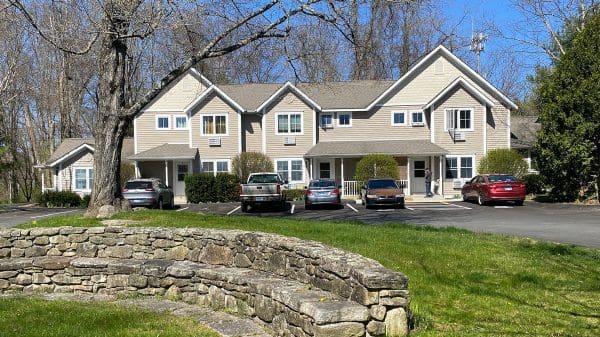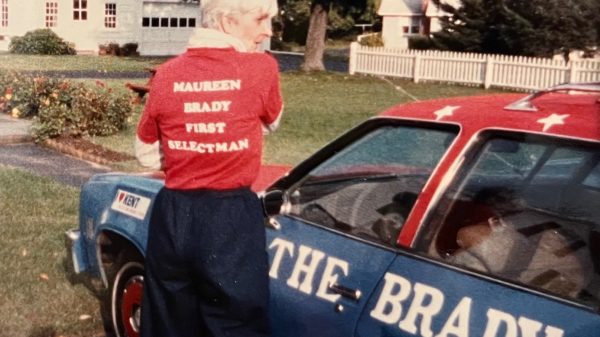KENT—Work is progressing quickly at Emery Park on Route 341, cleaning up its facilities, opening up its hiking trails and preparing for the restoration of the community pool.

The pool has been closed since before Covid and a community swimming area proved to be high on voters’ wish lists before last November’s election. There is currently $150,000 in the Capital Plan for restoration of the pool but there is a division of feeling among the populace about whether a new, chlorinated pool should be built or the old natural pool be restored.
Recreation Director Matt Busse met with a natural pool installer from southern Connecticut recently to discuss what needs to be done to reopen the existing pool. It was determined that the existing feeder pool, designed to filter water as it flows into the pool, is, ironically, the source of bacteria in the swimming area. It must be dredged and plantings established to increase filtration. An alternative possibility would be to connect the pool directly to the stream that feeds it to increase water circulation.
Busse told subcommittee members that the state Department of Transportation (DOT) is supposed to create a berm along Route 341 by the end of the month to prevent runoff from entering the park and that this should reduce or eliminate surface water contamination of the pool. If that proves to be not true, curtain drains would be needed to direct water around the facility.
“It will be the gem of Kent.”
—John Grant, Emery Park Subcommittee chairman
Ed Matson, who is contracted to do parks maintenance, will clean the drainage pipe so water can easily flow into the swamp area rather than the pool. A dormant beaver dam in the feeder pool needs to be removed and fish that have found their way into the swimming pool must be extracted before it can be drained and its cement repaired and painted.
The figures associated with restoration of the pool are daunting, about $250,000, but subcommittee chairman John Grant said it would make it the “gem of Kent.”
“[The consultant] said it has good bones,” reported Busse. “It just needs repairs and modifications. It will be $100,000 to do the cosmetics and $150,00 to do the upgrades, which is not more or less expensive than a chlorinated pool, but we could enjoy our natural beauty.”
Subcommittee member Miranda Lovato said care should be taken “to make sure we put money into making it attractive—dress it up and win over some of the people who want a brand-new chlorinated pool.”
“Something different, something new,” agreed Grant.
The subcommittee will look for grants to cover additional costs and also devoted discussion to whether using local contractors, who might help the town, would lower costs.
Meanwhile, other aspects of the park have been improved. Grant has cleaned out the shed on the property, making it again useful for the public and Busse has been active cleaning the overgrown trail up the side of the hill. He recently removed a couple of trees at the top to improve the view and is starting a weekly hiking group, which is proving popular. “It will help people to see what a true gem the park is,” he said.
“The park is getting a lot more traffic,” Grant reported. “People are asking questions and want to know when the pool will be open. We’ve had people from Canada stop by and use the trail. They loved it and wanted more trails.”


























